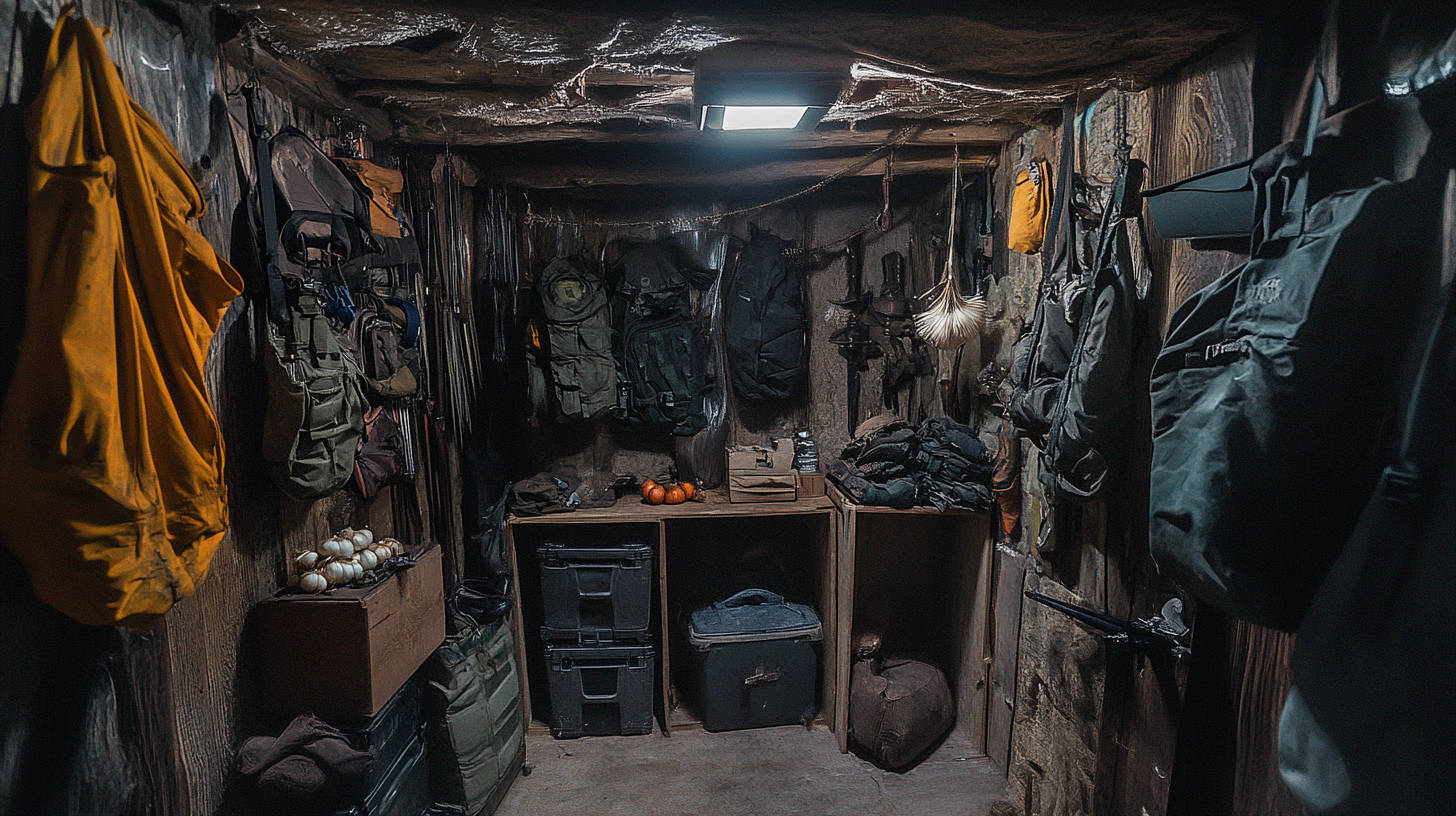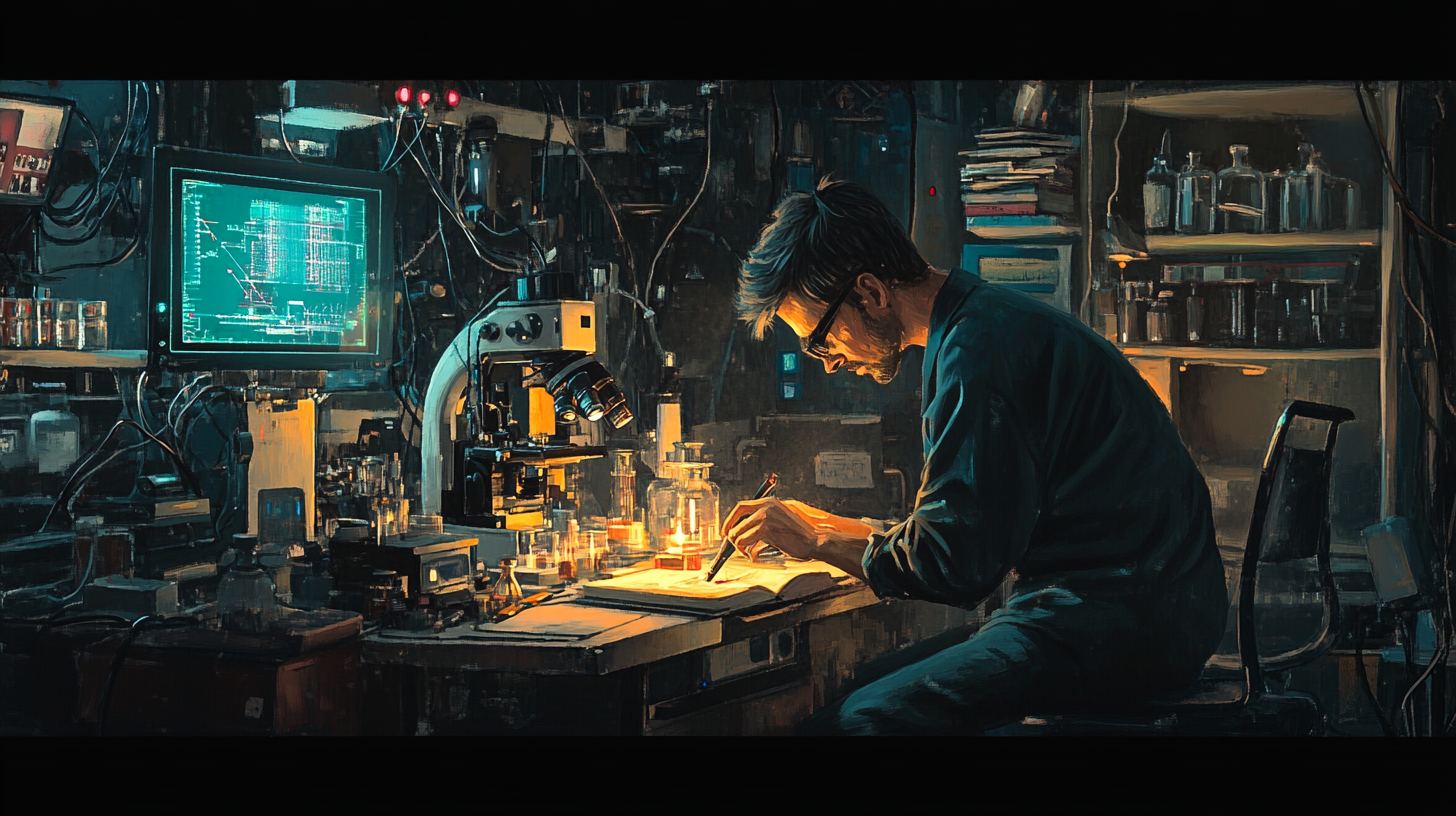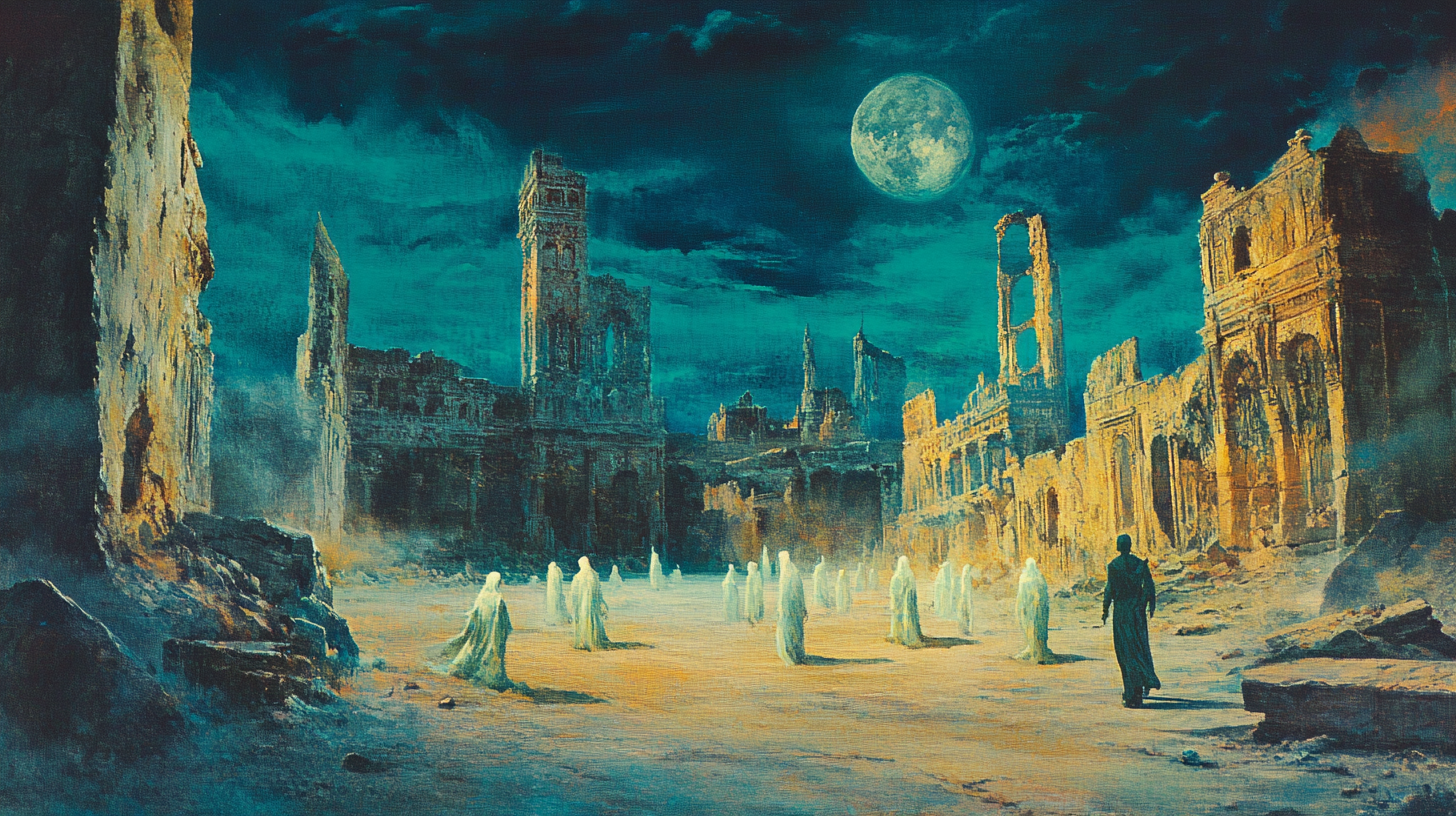When a Man Stands Alone – Responsibility in "I Am Legend"
In Richard Matheson’s “I Am Legend,” Robert Neville shows what it means to be a man of discipline, duty, and resolve—even when the world falls apart.

A man boards his windows against the dark. He sharpens wooden stakes by hand, checks the seals on his doors, and then turns to his microscope to study the blood of his enemies. In the world of "I Am Legend," Robert Neville is alone—not just in the physical sense, but in principle. The city around him is lifeless by day and monstrous by night. Yet he holds the line.
Richard Matheson's 1954 novel isn't merely a horror story about vampires or a viral apocalypse. It's a portrait of a man committed to duty in the face of extinction. Neville isn't waiting to be rescued or wallowing in defeat. He's working, thinking, preparing. His life is ruled by discipline and driven by a code of responsibility forged in a world that no longer exists. "I Am Legend" gives us not a cautionary tale, but an enduring example of what it means to be a man when nothing is left.
Fortress of Discipline – Order in the Midst of Chaos
Robert Neville's house is more than shelter. It is a fortress built on discipline. Each morning, he checks the garlic at the windows, reinforces his barricades, and surveys for damages inflicted by the night's siege. He inventories his supplies, refuels the generator, sharpens his tools, and sets out for fieldwork. These are not the habits of a man afraid. They are the actions of a man with a purpose.

Matheson presents Neville's routine not as busywork but as a code of survival. Where the world has collapsed into decay, Neville imposes structure. He keeps records. He studies blood samples. He tests theories and logs his findings. Even his meals are timed. This is not desperation. It is order. And order, in a disordered world, is the first expression of responsibility.
There is no audience for Neville's labor, no applause for his precision. Yet he maintains it all. This is self-sufficiency in its purest form. A man doing what must be done because it must be done. His discipline does not preserve comfort. It preserves character. In the absence of civilization, Neville becomes civilization's last steward.
Matheson does not romanticize this work. He respects it. Through Neville, he reminds the reader that real responsibility starts with order. With a man choosing to uphold standards even when the world has stopped watching. In Neville's hands, even the act of closing a latch becomes an act of defiance. He lives as if things still matter. Because to a responsible man, they always do.
The Science of Sacrifice – Duty Over Comfort
Science, for Robert Neville, is not a career or a curiosity. It is a form of duty. With no formal training, he teaches himself biology, virology, and blood chemistry. He reads textbooks by lantern light and applies knowledge through experimentation. His goal is not personal gain. It is restoration. What drives him is the belief that someone must try to fix what has gone wrong.

Each captured infected subject is part of that mission. Neville does not kill for sport or revenge. He conducts tests, measures reactions, and records outcomes. His actions may appear cruel at a glance, but Matheson is careful to show the purpose behind them. This is not brutality. It is labor. Neville is trying to save what remains of mankind—even if mankind no longer resembles his remembered image.
There are moments when he breaks. He drinks too much. He rages at the walls. He listens to music from a world that no longer exists. But then he returns to the lab. He returns to the work. That is what separates a man of responsibility from one driven by impulse. He may falter, but he does not quit.
Matheson shows us that sacrifice is not always public and not always rewarded. Sometimes, it is silent, unseen, and thankless. Neville sacrifices comfort, peace, and sanity not because he is forced to—but because responsibility calls him to. In an age of collapse, he responds not with despair but with action. The man studies while others sleep. He works while others decay. That kind of sacrifice is the last form of hope in Matheson's world.
The Legend of Responsibility – When Honor Makes You an Enemy
The turning point in "I Am Legend" comes not with a battle or discovery, but with a realization. Robert Neville is not a hero to the new world. He is its villain. The infected are not all mindless creatures. Many have adapted. They have formed a new society, governed by new rules. To them, Neville is a relic of destruction—a feared hunter who kills their kind by day and vanishes into shadow by night.

This is the great reversal Matheson constructs with precision. Neville, who thought himself a savior, has become a myth of terror. But Matheson does not frame this as failure. He presents it as a consequence. Responsibility carried to its furthest edge often separates a man from those around him. In Neville's case, it has made him a symbol.
He does not ask to be understood. He does not beg for mercy. When the new society captures him, he accepts his fate. They see him as a monster. He sees himself as a man who kept his word. That is the final measure of his honor.
What Matheson offers is not a condemnation of Neville's actions, but a portrait of their cost. In staying true to a code of moral clarity, Neville becomes alien to a world that abandoned that code long ago. His responsibility did not shift with the wind. It remained fixed. That is why he becomes a legend—not in triumph, but in principle.
When a man lives by duty and refuses to compromise, he should expect to be misunderstood. But misunderstanding is not a disgrace. For Neville, and for Matheson, it is the highest form of fidelity.
The Last Watchman of Civilization
Robert Neville does not survive the story. But survival was never the measure of his character. What sets him apart is that he remained at his post. In "I Am Legend," Richard Matheson gives us more than a tale of horror or isolation. He gives us a picture of a man who chose duty over despair, principle over compromise, and responsibility over comfort.

Neville is not remembered by the world he tried to save. He is feared, misunderstood, and finally removed. But that does not diminish his actions. It confirms their meaning. Neville holds to the old code in a world where the rules have changed. He lives by it, fights by it, and dies by it.
Matheson's message is not cynical. It is sobering. He does not suggest that responsibility guarantees glory. He shows that responsibility defines the man, regardless of the outcome. Neville's death is not defeat. It is fulfillment. He answered a higher call and kept answering it, even when the world no longer shared his language.
In an age that often forgets what duty looks like, "I Am Legend" remembers. And through Robert Neville, it reminds us. The final man is not the one who survives. He is the one who stays faithful.

